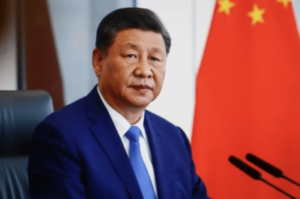$TSLA $LI $NIO
#Tesla #Zeekr #EVmarket #ChinaAuto #ElectricVehicles #SelfDriving #StockMarket #TechStocks #Investing #AutoTech #Innovation #Competition
Chinese electric vehicle manufacturer Zeekr is set to introduce advanced driver-assistance system (ADAS) capabilities to its customers in China at no additional cost. This strategic move highlights the intensifying competition in the Chinese EV sector, where innovation and affordability are becoming key differentiators. By leveraging cutting-edge autonomous driving technologies, Zeekr aims to challenge both domestic and international rivals, including Tesla ($TSLA), Nio ($NIO), and Li Auto ($LI). Offering ADAS for free could serve as a significant value proposition for potential buyers, enhancing Zeekr’s market position while pressuring competitors to reevaluate their pricing models for similar features.
Tesla, which remains a dominant force in China’s EV market, has typically charged premium fees for its driver-assistance features, such as the Full Self-Driving (FSD) package. Zeekr’s move could pose a direct challenge to this model, potentially creating a shift in consumer expectations regarding advanced vehicle automation. The financial implications for Tesla and other automakers will depend on whether they adjust their pricing structures in response. If consumers increasingly demand free or low-cost ADAS, companies relying on revenue from software subscriptions may see declining margins. Meanwhile, Zeekr’s parent company, Geely, could strengthen its foothold in the EV market by leveraging economies of scale and technology synergies within its broader auto portfolio.
Investors and analysts will closely watch the impact of this development on Zeekr’s market share and delivery numbers over the coming quarters. As more automakers race to integrate autonomous tech to enhance driver experience, regulatory frameworks in China will also play a crucial role in shaping industry adoption. While Zeekr’s free ADAS initiative could attract tech-savvy consumers and price-sensitive buyers, execution risk remains a factor. The company must ensure that the technology meets safety standards and consumer expectations, or risk reputational damage that could offset potential gains. If successful, Zeekr might see increased consumer interest, higher vehicle deliveries, and a stronger financial position in the long run.
For the broader EV sector, this move underscores an ongoing transition where software-driven features are becoming as critical as battery performance and range. Should Zeekr’s strategy prove effective, it may accelerate a shift toward more automakers offering ADAS at lower costs, fundamentally reshaping industry pricing dynamics. Investors should watch how Tesla and other competitors respond, as well as potential impacts on their revenue models. With China being the largest EV market globally, pricing and technological innovation in the region could set the benchmark for global trends, influencing how major automakers invest in self-driving capabilities moving forward.










Comments are closed.